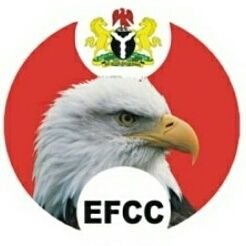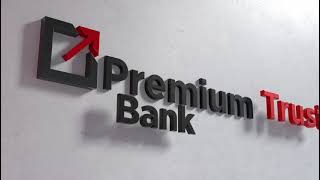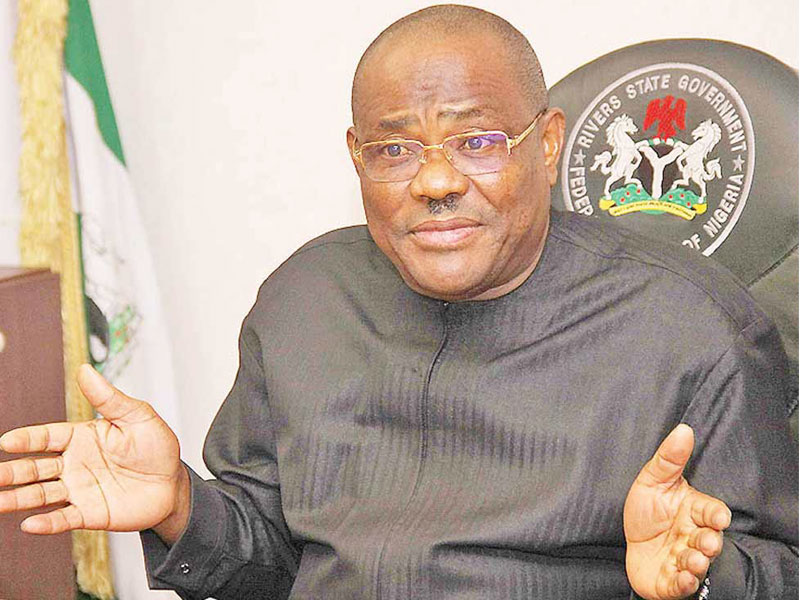Business
Cryptocurrency Portrays Greater Danger To World Economy, EFCC Raises Alarm
Published
4 years agoon
By
Editor
Our Reporter, Abuja
Chairman, Economic and Financial Crimes Commission, EFCC, Abdulrasheed Bawa, has said growth of cryptocurrencies, such as Bitcon portrays a far greater danger to the world economy.
The EFCC boss stated this while delivering a keynote address on Monday at the 38th Cambridge International Symposium on Economic Crime, themed, ‘Economic Crime-Who pays and who should pay?,’ organized by the Center for International Documentation on Organized and Economic Crime (CIDOEC), Jesus College, University of Cambridge, United Kingdom.
READ ALSO: Accomplices On The Run As EFCC Arraigns Suspect For N425m Internet Fraud
Describing cryptocurrencies as the new typologies of economic crimes, Bawa said criminals now elect to transact or receive illegal monies such as ransom money in digital currency, noting that Bitcoin and Ethereum were the most commonly used medium of these exchanges.
He therefore, advocated collective and collaborative approach by authorities around the world in dealing with the challenges of financial crimes which, he noted, is a global scourge as no nation is spared its virulence.
According to him, economic crimes which are largely illegal acts committed for private gain, “affect the vital structures of global economies, causing significant damage to the Global Financial System and depriving developing nations of the needed resources for sustainable development”.
He noted that developed countries are not immune from the scourge, which has “magnified with the proliferation of Cyber-crimes which threatens the stability of Global Financial Institutions.”
He commended the choice of the theme which he said offers a platform to interrogate the challenges of economic crimes.
“As the victims of crime continue to suffer globally from the effects of financial crimes, either directly or indirectly as part of a social system, the determination of who pays or who should pay becomes a critical measure of the criminal justice system in place,” he said.
He underlined the imperatives of an impartial judiciary in ensuring that “the perpetrators of acts and not the victims pay for their crimes.”
While highlighting some of the transparency and accountability achievements of the Nigerian government under the leadership of President Muhammadu Buhari, including enactment and amendment of relevant laws to enhance public accountability and reforms such as Treasury Single Account and the Whistle Blower Policy among others; Bawa pointed out that the EFCC, as the rallying point in the fight against economic crimes in Nigeria, has recorded important milestones in investigations, prosecutions and assets recovery.
READ ALSO: EFCC Declares Lekki Cybercrime Hotbed, Arrests 402 Suspects In 3 Months
In his words, “Since its establishment in 2003, the Commission has recorded no less tha 3,500 convictions and recovered assets of significant value including properties in Nigeria, the UK, USA, and the UAE. All these have measurably contributed to the national efforts against economic crimes in Nigeria”.
The EFCC boss concluded by challenging participants to come up with practical solutions to curb the international threat of economic crimes.
Chairman of the Symposium, Mr. Saul Froomkin, thanked the EFCC boss for his insightful presentation, and the support received from Nigeria in organizing the event.
Participants at the Symposium were drawn from law enforcement and security agencies, accountability institutions and select stakeholders from across the world.
You may like


EFCC Arrests 31 Suspected Internet Fraudsters In Nasarawa


Bank Employee Rejects $7000 Bribe To Compromise Company’s System


Lawyer Asks Court To Void EFCC, NSCDC Acts


$1bn Fraud: Court Refuses Detained CBEX Operators Bail


EFCC Kicks As Yahaya Bello Seeks Court’s Permission To Travel Abroad


Abuja Property Dispute: Judge Berates EFCC Over Refusal To Obey Court Order EFCC

The Naira experienced a slight depreciation on Friday at the official market, trading at N1,528.56 to the dollar.
Data obtained from the website of the Central Bank of Nigeria (CBN) showed that the Naira lost N2.73.
This represents a 0.17 percent loss compared to the N1,525.82 recorded on Thursday.
READ ALSO:Naira Appreciates At Official Market
The Naira, which opened the week on Monday with a gain of N9.52 against the dollar, held steady gains until Thursday.
On Wednesday, the local currency gained N3.42 against the dollar and received commendation from the International Monetary Fund (IMF).
The IMF, in its 2025 Article IV Consultation report on Nigeria, commended the CBN for its reforms to the foreign exchange market, which supported price discovery and liquidity.
Business
JUST IN: Dangote Refinery Hikes Petrol Ex-depot Price
Published
2 weeks agoon
June 20, 2025By
Editor
Nigerians may soon pay more for petrol as the Dangote Petroleum Refinery on Friday increased its ex-depot price for Premium Motor Spirit to N880 per litre, raising fresh concerns over fuel affordability and price volatility in the downstream sector.
Checks on petroleumprice.ng, a platform tracking daily product prices, and a Pro Forma Invoice seen by The PUNCH confirmed the hike, representing a N55 increase from the previous rate of N825 per litre.
The increment would ripple across the entire fuel distribution chain, likely pushing pump prices above N900/litre in some parts of the country, especially in areas far from the distribution hubs.
The hike comes despite global crude prices falling. Brent crude dipped by 3.02% to $76.47, WTI fell to $74.93, and Murban dropped to $76.97 on Friday. The decline in benchmarks offers little relief due to persistent fears of sudden supply disruptions.
READ ALSO: JUST IN: Dangote Refinery Sashes Petrol Gantry Price
The refinery has increased its reliance on imported U.S. crude and operational costs amid exchange rate instability, which adds to its pricing pressure.
On Thursday, the President of the Dangote Group, Aliko Dangote, said his 650,000-barrel capacity refinery is “increasingly” relying on the United States for crude oil.
This came as findings showed that the Dangote Petroleum Refinery is projected to import a total of 17.65 million barrels of crude oil between April and July 2025, beginning with about 3.65 million barrels already delivered in the past two months, amid ongoing allocations under the Federal Government’s naira-for-crude policy.
Dangote informed the Technical Committee of the One-Stop Shop for the sale of crude and refined products in naira initiative that the refinery was still battling crude shortages, which had led it to resort to imports from the United States.
READ ALSO:Dangote Stops Petrol Sale In Naira, Gives Condition For Resumption
On Monday, the president of the Petroleum and Natural Gas Senior Staff Association of Nigeria, Festus Osifo, accused oil marketers of exploiting Nigerians through inflated petrol prices, insisting that the current pump price of PMS should range between N700 and N750 per litre.
He criticised the disparity between falling global crude oil prices and the stagnant retail price of petrol in Nigeria.
“If you go online and check the PLAT cost per cubic metre of PMS, convert that to litres and then to our Naira, you will see that with crude at around $60 per barrel, petrol should be retailing between N700 and N750 per litre.”
He asserted that if Nigerians bear the brunt of higher fuel costs, they should be allowed to enjoy the benefit of low pricing.
His forecast of increased costs now appears spot on, considering the latest developments.
Marketers are already adjusting. Depot owners and fuel distributors in Lagos and other cities anticipate a domino effect, with new price bands expected to follow Dangote’s lead.
Many had held back pricing decisions since Tuesday, when the refinery halted sales and withheld fresh PFIs. The delay fueled speculation, allowing opportunistic price hikes across various depots.

The Naira, which has seen steady appreciation against the Dollar all week, closed stronger on Friday, trading at ₦1,580.44 in the official forex market.
Data from the Central Bank of Nigeria’s website show the Naira gained ₦4.51k against the Dollar on Friday alone.
This marks a 0.28 per cent appreciation from Thursday’s closing rate of ₦1,584.95 in the official foreign exchange window.
The local currency maintained consistent strength throughout the week, recording gains daily.
READ ALSO: Naira Appreciates Against Dollar At Foreign Exchange Market
On Monday, May 19, it traded at ₦1,598.68; on Tuesday, at ₦1,590.45; and on Wednesday, at ₦1,584.49.
These gains suggest increased investor confidence and improved forex supply, contributing to the naira’s performance.
Meanwhile, the CBN, at its 300th Monetary Policy Committee meeting held Monday and Tuesday, retained the Monetary Policy Rate at 27.5 per cent.
- Online Reports On Protest False, Intent To Tarnish Our Image – AAU Ekpoma
- Obi In Benin, Donates N15m To St Philomena School of Nursing Sciences
- What To Know About Rashidi Ladoja, The Next In To Become Olubadan
- Tension In Kano As Sanusi, Bayero Loyalists Clash Near Emir’s Palace
- Tension As FG Strips FAAN, NCAA, NAMA Of Revenue Collection Powers
- Flash Flood Warning: Sokoto, Edo, Akwa Ibom, 17 Other States At Risk In July — NiMet
- Trump Threatens Extra 10% Tariff On BRICS Nations
- Tiwa Savage Shares Emotional Moment With Son
- JUST IN: Gunmen Kill Policeman, Abduct Other In Imo
- INEC Announces Dates For Commencement Of Continuous Voter Registration In Osun
About Us
Trending

 Sports5 days ago
Sports5 days agoBREAKING: Liverpool Star Diogo Jota Is Dead

 Politics3 days ago
Politics3 days agoCoalition: Why Tinubu Must Not Sleep —Primate Ayodele

 Entertainment2 days ago
Entertainment2 days ago2Baba’s New Romance In Trouble As Natasha Fumes Over Loyalty Remark

 Politics5 days ago
Politics5 days agoCoalition: Abure-led LP Gives Obi 48 Hours To Leave Party

 Sports5 days ago
Sports5 days ago5 ‘Big’ Recent Events Diogo Jota Had Before His Death

 Politics3 days ago
Politics3 days agoAmaechi: I Will Resign As FCT Minister If… Wike

 Metro2 days ago
Metro2 days agoTragedy As Navy Boat Capsizes After Free Medical Outreach In Delta

 Metro5 days ago
Metro5 days agoThree-storey Building Collapses On Lagos Island, Many Injured

 Politics5 days ago
Politics5 days agoADC, A Coalition Of Failed Politicians – Wike

 Metro4 days ago
Metro4 days agoVIDEO: Police Arrest Varsity Student For Stabbing Colleague, Demanding Ransom In Delta























